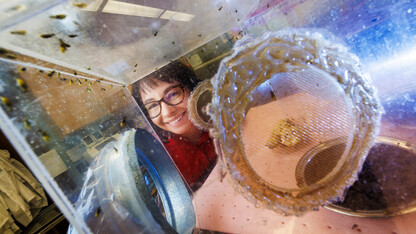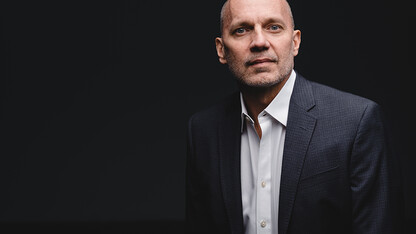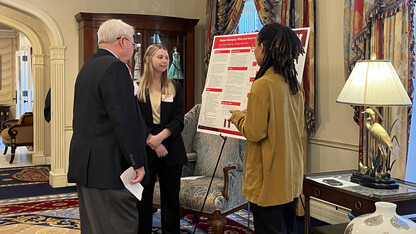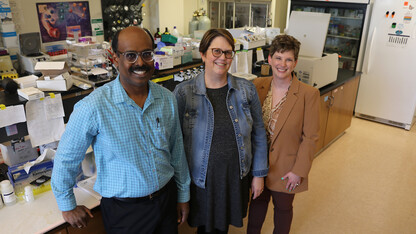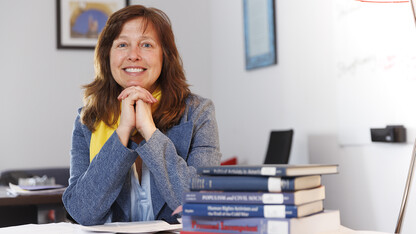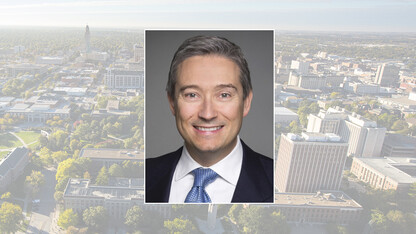· 3 min read
NebraskaMATH program featured at National Math Festival
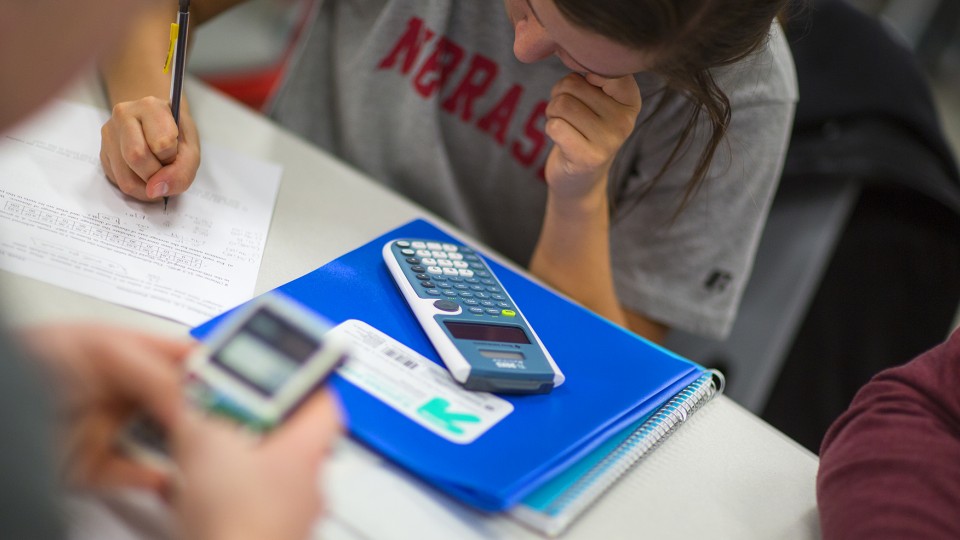
A flagship program developed by the University of Nebraska-Lincoln’s Center for Science, Mathematics and Computer Education received recognition at the outset of the inaugural National Math Festival in Washington, D.C.
The three-day festival kicked off with an April 16 policy briefing that featured NebraskaMATH, a UNL program that has forged statewide partnerships with more than 700 teachers to improve math education since 2009.
Program developer Jim Lewis joined Congressional delegations from Nebraska and other states in attending the meeting, which highlighted a total of four programs from across the country.
Lewis, an Aaron Douglas Professor of mathematics, said NebraskaMATH emphasizes content-based professional development for teachers. The program’s ability to help teachers fill their classrooms with inspiring math lessons, he said, represents a major reason that festival coordinators chose to spotlight it.
“My colleagues and I all have great respect for the teachers with whom we work,” Lewis said. “At a time when there is far too much criticism of teachers, the fact that we honor and respect great teachers … can motivate them to even greater achievements. One of the key messages that the organizers of the National Math Festival want to deliver is that investing in outstanding teachers is the key to having great schools.”
NebraskaMATH has done this, Lewis said, by linking K-12 teachers and administrators with university educators and mathematicians. The resulting opportunities have augmented teachers’ already formidable content knowledge, instructional practices and educational perspectives, he said.
Lewis also credited UNL’s administration and the National Science Foundation with providing a platform for systemic, long-term efforts that he cited as essential to improving student achievement and attitudes toward math.
“Taken together, this has made it possible to sustain our work,” said Lewis. “That’s one of the important insights one must have: Education reform takes time. We needed a sustained effort that built a community of teachers and administrators working together. Because of the support we’ve had, and because of the long-term commitment of my colleagues, we’ve been able to create something special.”
Coordinated by the Mathematical Sciences Research Institute and the Institute for Advanced Study, the National Math Festival represents the country’s first such event dedicated to showcasing the power of mathematics in everyday life.
